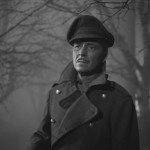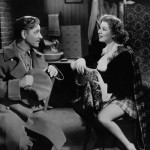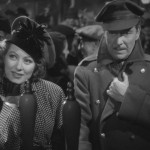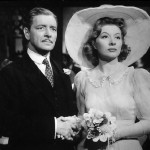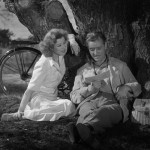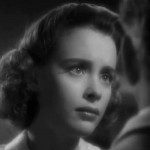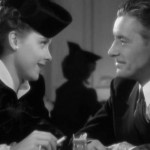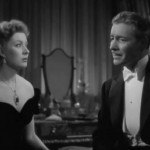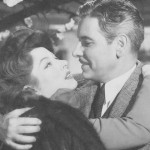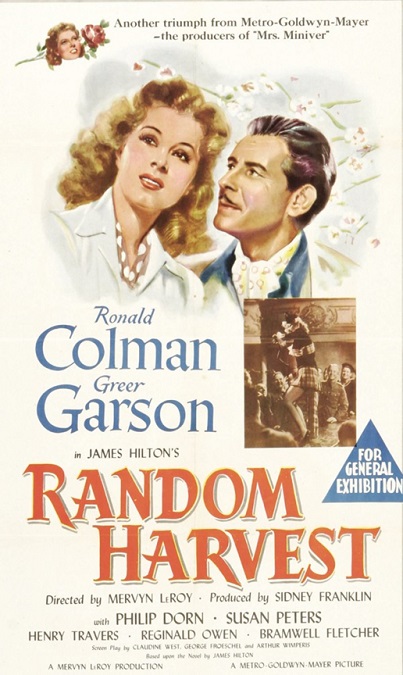
Random Harvest – 1942
I must admit to having my doubts about this one. Before watching the film, I read only the following synopsis: “Wounded World War I soldier Charles has no memory of his past, and when he meets Paula, he’s certain she’s the one for him. They marry, but Charles is hit by a car, regains his memory of his life before Paula, and loses all memory of Paula. He returns to his wealthy relatives, and a desperate Paula takes a job as his secretary to be near him in this tragic romantic drama.”
The first thought that came to me was that complete amnesia caused by head trauma is an extremely rare thing. Second, more head trauma can only cause more damage to the brain, not produce a miraculous cure. Third, the complete amnesia would have to effectively occur twice if he completely forgets the “second” life he created for himself after the first injury. The entire scenario just sounded utterly farcical.
But I watched the film anyway, deciding to give Ronald Coleman and Greer Garson a chance. As long as you can throw reality out the window, you will be able to enjoy the film. Coleman and Garson both did a good job with the script they were given. After all, the movie wasn’t about the scientific nature of extreme brain injuries and the long term effects of retrograde amnesia.
It was a romance, first and foremost. And as romances go, I liked the way their relationship was slowly built and gently portrayed. By the end of the movie, I found myself emotionally invested in the characters, hoping that they would find their ways back to each other. Of course, they did, though only seconds before the movie ended.
In particular, I liked Ronald Coleman’s performance as the amnesic Charles Rainier, especially in the beginning. The way he seemed to struggle with confusion, emotional stress, and social anxiety was particularly well acted. After meeting Paula, played by Garson, he begins to slowly gain the confidence he needs to face the outside world again, though it didn’t happen all at once. If I had any complaints about him, it would be that he seemed just a little too old for the part, but it didn’t bother me that much.
Garson also did a fine job. She was gorgeous and had a magnificent poise about her. However, I have a little problem with her character. Garson acted the part just fine, but the writer needed to explain things a bit more to make Paula’s willingness to abandon her career for a stranger who can barely bring himself to speak to her, let alone anyone else. Did she have a history of having a soft spot for men in need of help, or was it simply love at first sight? Why did she feel such a strong emotional connection with this man whom she had just met?
After watching the film, I did a little more research, and found that there were several significant changes between the original novel, written by James Hilton, and the film. Only one of these changes had any bearing on the character of Paula, and it is a pretty understandable one. In the novel, it isn’t revealed until the very end, that Paula and Margaret Hanson are the same woman. Such a thing couldn’t be done in a movie because the audience would see the same actress in both roles.
But I’ll be honest, I think that this change improved the story dramatically. As the audience, we are aware that they are the same woman, and thus we see exactly what kind of emotional roller-coaster her character has to go through as Charles’s secretary and then political wife, before Charles finally remembers her as Paula in the end. It made me feel for her character so much more deeply than I would have had I not known.
Another change was concerning the character of Kitty, played by Susan Peters. In the film, Charles remembers who he is and forgets Paula and his baby. He meets and nearly marries a young woman named Kitty. But less than a day before the wedding, she looks into his eyes as he hears the music played when he had wed Paula. Though he cannot understand why the music sounds so familiar to him, he nonetheless feels that there is something still missing in his life. In his eyes, Kitty recognizes the doubt and longing for something that isn’t her. She calls the wedding off and leaves him. In the novel, she still leaves him but is also subsequently killed off.
I enjoyed the romantic aspect of this film, and I thought the two leads both did a good job. Just remember that reality needs to be left behind. The name of the game is, “suspension of disbelief.” And just as an afterthought, suspension of disbelief is a phrase that can also easily apply to Greer Garson’s dancing in her stage show. We can pretend that she was a good dancer for the sake of the plot. At least she had great legs and a short skirt.
